QuestionQUESTION: Hi
I recently bought a Epaulette Shark and i have been reading up on it as much as i can find but i can not seem to find alot of info,
can you please point me in the right direction. Also is there any illnesses i should keep an eye out for eg white spot, i want a long happy life for my new mate
Thanks
ANSWER: Hey Guy,
Hemiscyllium Ocellatum, the Epaulette Shark, is a nice addition to a large aquarium(180 gallons or more)they can get up to 4 feet in good conditions. As with most sharks, they are extremely resistant to disease and infection, and live long lives(Score! You may have a 20 year or more pet!!!) with good conditions. They can however bring parasites in from the wild so quarantine is a must. These sharks are nocturnal and spend much of the daylight period hiding in cracks and crevices, aquascaping is needed to make them feel safe. They will need secure ledges and caves, but you have to watch them, epaulette sharks will dig under rockwork to locate food and/or to create suitable hiding places, so an unstable reef structure can end up crushing your shark.
They feed mainly on worms and crabs, while shrimp and small fish are eaten much less often. Some of these foods are scavenged out of the sand or sucked from crevices. A normal captive feeding regimen for an epaulette shark would be to feed it two or three food items, several times a week. You should keep an eye on your shark's weight. If it begins to lose weight, feed it more. The best method I found personally is to feed it as much as it wants, 2 or 3 times a day. The epaulette sharks have relatively small mouths and teeth suited for grasping and holding, not cutting. Young epaulettes may have trouble ingesting and chewing larger food or hard shelled invertebrates so to ensure that the food presented is ingested, chop it into small bite sized pieces, and make sure live food is small enough to be swallowed whole. You can let the food drop to the bottom of the tank and let the epaulette find and eat it, or you can present the food on a feeding stick(my personal choice). They become very personable when fed this way. Always watch while doing maintenance and cleaning though, you dont want a mistaken bite.
You need to watch them with tank mates as well. Highly likely to eat/try to eat small fish and crustaceans. They might be harassed and bullied by fish that feed on sessile invertebrates, like larger angelfish, butterflyfish, triggerfish and puffers. These fish will occasionally nip at these sharks. I have seen epaulettes that have had their eyes damaged by these types of tank mates. They are also potential food for large morays when young.
Well thats my 2 cents worth for a new shark owner. As far as reading and needs go, Blue Zoo Aquatics, Wet Web Media, and Fosters and Smith are great places to pick up more reading and care.
I had mine for 18 years hope you do as well. Good luck and let me know how it goes or if I can offer any help!
---------- FOLLOW-UP ----------
QUESTION: Just a few more quick questions,
The shark is only small about a foot and im keeping it in a 100 gallon tank for about 6 to 9 months till i upgrade to a 8 or 10 foot tank, is this ok for the moment.
Is it better to feed my shark live worms & crabs from the fish store, it seems happy and is eating scallops and whitebait.
It is the only thing in the tank with a little 7inch snowflake eel, and dramas mixing the 2 together so far eel hangs out in the rocks and the shark has its caves under them.
Thanks
AnswerHey Guy,
The 100 gallon will be fine for 6 to 9 months, then a 180 or larger will be in order. As with all marine life, the bigger the environment, the better.
A mix of live and frozen/defrosted is best. Variety of diet is a big help with longevity. Sounds like you have a good handle on that though. Silversides, scallops, table shrimp, crabs, whitebait(deep water whitefish) are all good to mix in the diet.
The snowflake and epaulette are good tank mates. They grow at a similar rate, and as long as fed well you shouldnt have any issues. Introduction as juvenilles prevents alot of problems, and once full grown they will be close enough in size there should be no predation of each other. Well done! I'm glad to hear you have a great start going! Let me know how it goes or if I can help more!

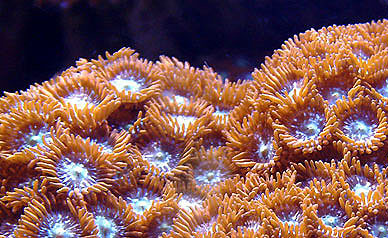 Adding a Falco
QuestionHi this is dave
I was thinking about adding a
Adding a Falco
QuestionHi this is dave
I was thinking about adding a
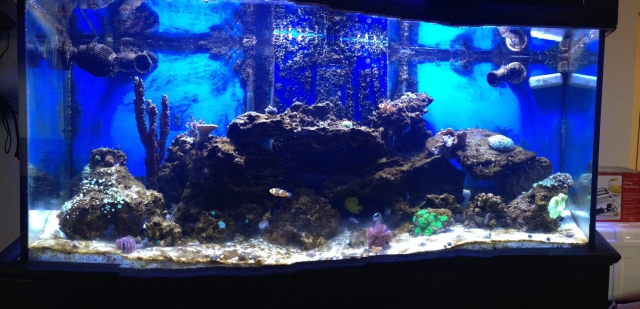 Algae problem
QuestionQUESTION: We have had our tank set up for about
Algae problem
QuestionQUESTION: We have had our tank set up for about
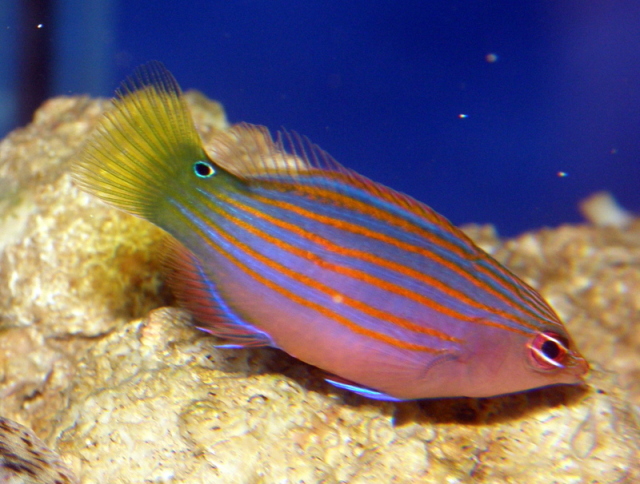 salt water Six Line Wrasse
QuestionI was just wondering if Six Line Wrasse fish ar
salt water Six Line Wrasse
QuestionI was just wondering if Six Line Wrasse fish ar
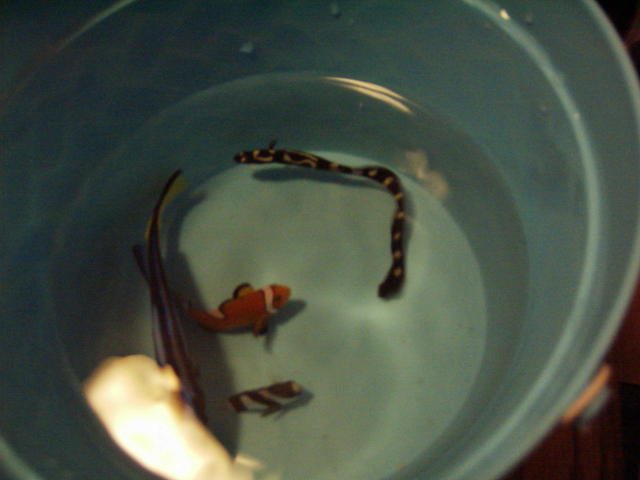 fish id
QuestionQUESTION: I have a long slender fish in my salt
fish id
QuestionQUESTION: I have a long slender fish in my salt
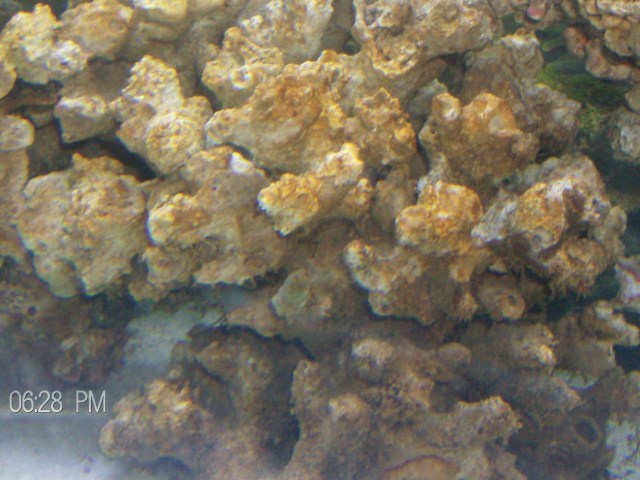 rock changing colors in saltwater aquarium
Questionyellow rocks
QUESTION: I started a 55 ta
rock changing colors in saltwater aquarium
Questionyellow rocks
QUESTION: I started a 55 ta